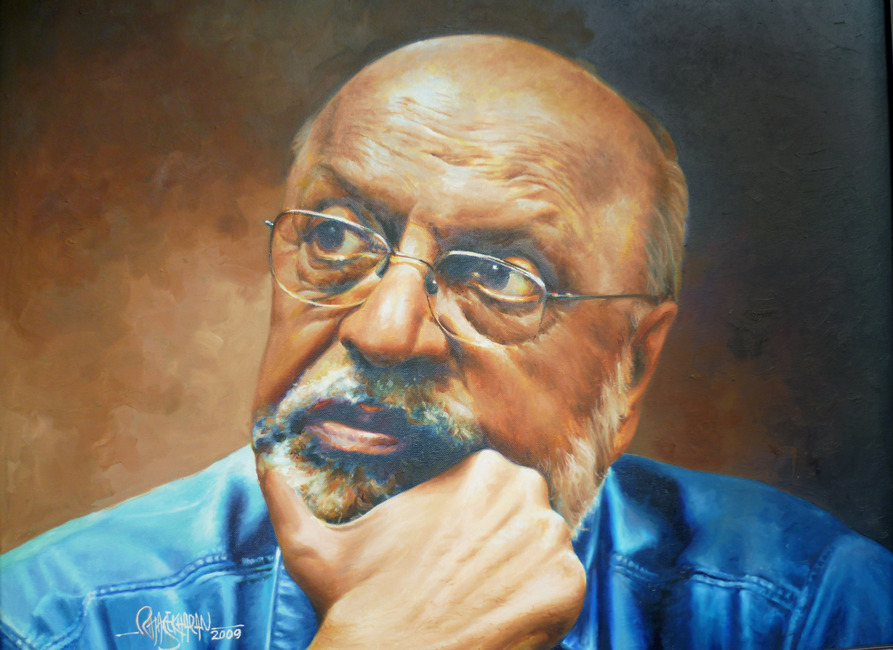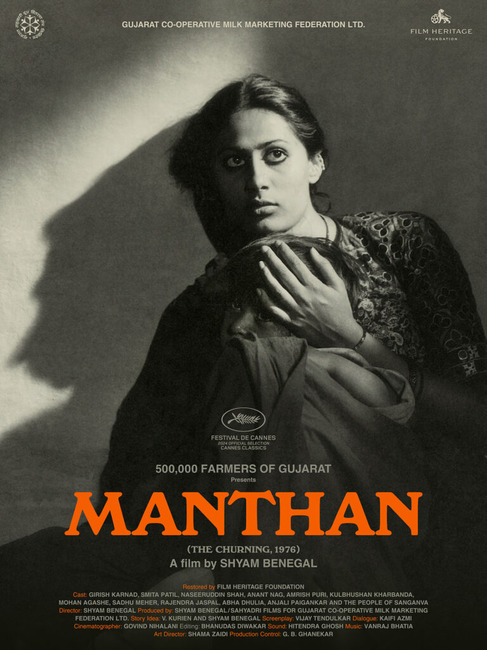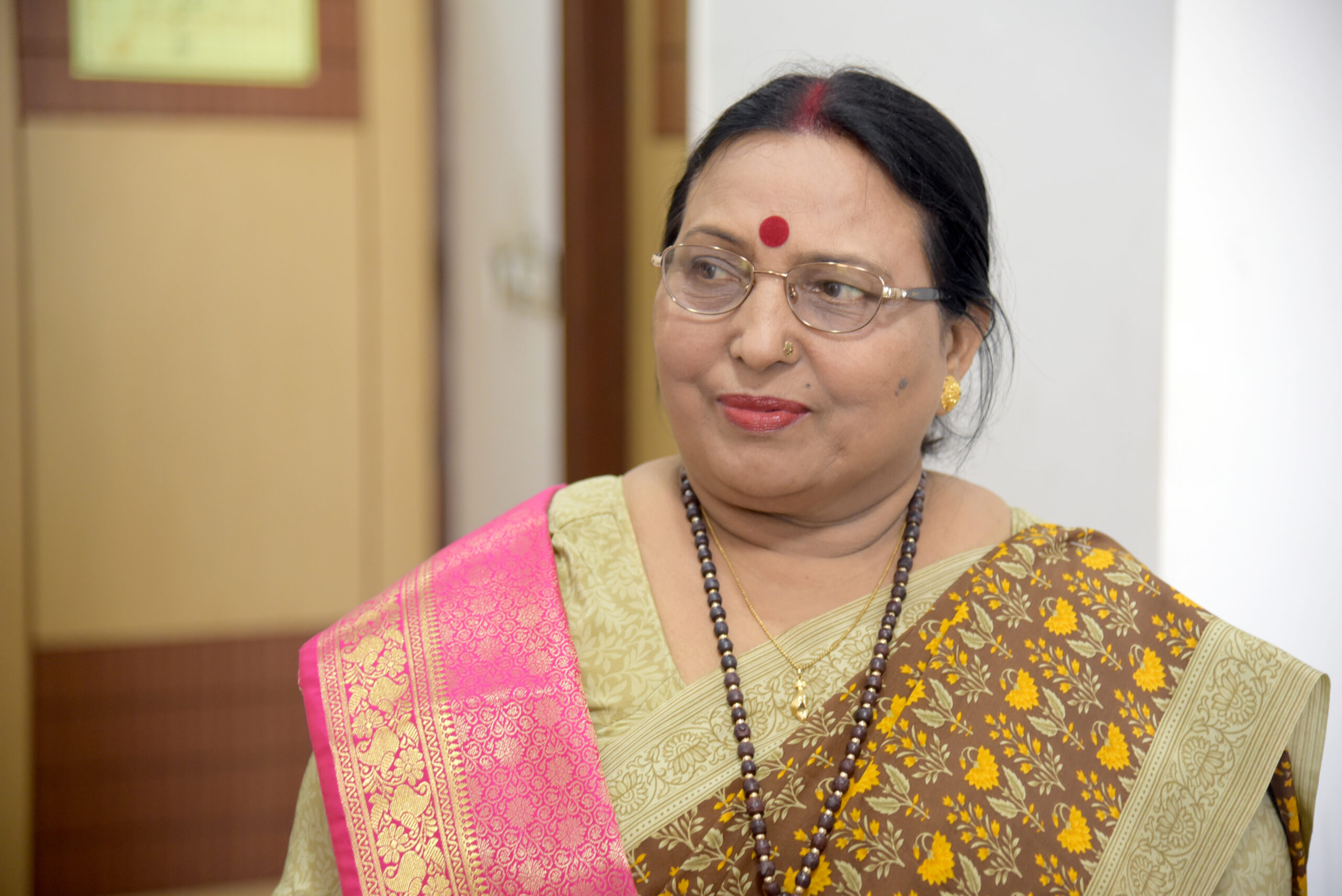
December 14, 1934 – December 23, 2024
The passing of Shyam Benegal has brought down the curtains on the life and times of one of India’s most cerebral filmmakers. His body of work redefined Indian cinema in more ways than one
Before the world of art and culture could even recover from the irreparable loss of tabla maestro Zakir Hussain, it was once again cast under a pall of gloom on December 23, 2024, with the passing away of Shyam Benegal, just a few days after he celebrated his 90th birthday.
A filmmaker of extraordinary repertoire, Benegal was a pioneer of new wave cinema in India. He had the unique ability to switch from the big screen to the small screen of television seamlessly and produced several memorable documentaries and TV series. Perhaps the most defining moment of his career was the making of the timeless classic Manthan (1976). For this film, Benegal raised Rs 2 crore in small donations from almost five lakh dairy farmers in Gujarat, making it one of the first ‘crowd funded’ films in the world long before the term entered the popular lexicon.
Featuring some of the brightest talents such as Smita Patil, Girish Karnad, Naseeruddin Shah, and Amrish Puri, who were redefining parallel cinema at the time, the film tells the story of India’s greatest success in cooperatives that we now know as Amul. He co-authored the script for the film with Dr Verghese Kurien, who is credited with ushering in the milk production revolution—the White Revolution—in India by forming milk cooperatives. Manthan was restored in digital format and re-released in June last year and ran to packed theatres.
Initally, Benegal planned to make a documentary on the milk cooperative movement because finding the funds to finance a fulllength feature film was proving to be difficult. As he revealed in a later interview, it was Dr Kurien himself who came up with that most unusual solution. He requested the dairy farmers to sell their milk for Rs 6 for a day and donate the extra earning towards financing Manthan. For this reason, Benegal credits the five lakh farmers as co-producers. Despite being a low-budget affair, Manthan’s storyline, its cinematic excellence, and the performances of the actors earned fulsome praise from legendary filmmakers such as Satyajit Ray and Raj Kapoor.
Benegal was born in a middle-class family in Hyderabad. He made his first film at the age of 12 with a camera that was gifted by his father, who was a photographer. He came to Mumbai in 1959 to chase his dreams after being inspired by his cousin, Guru Dutt, a towering thespian whose films were setting new benchmarks in Bollywood. Though Benegal wanted to make a career in the film industry, he joined Lintas, one of the most prominent advertising agencies of the time, as a copywriter, where he rose to become its creative head.
In 1962, he made his first documentary film in Gujarati, called Gher Behta Ganga (Ganga At The Doorstep). From 1966 to 1973, Benegal taught at the Film and Television Institute of India (FTII). He made his first full-length feature film, Ankur, in 1974, which focused on the trials and tribulations faced by farmers in the drought-prone regions of Andhra Pradesh (then undivided). This film earned nomination in the Golden Bear category at the 24th Berlin International Film Festival and won 43 awards at various film festivals besides the National Film Award for Second Best Feature Film at the 20th National Film Awards. Apart from Manthan, he delivered memorable films like Nishant (1975) and Bhumika (1977) during this phase of his career that established him as the leading figure of the new wave cinema movement in India. All four of his early films won National Film Awards in various categories. Between 1975 and 2009, his films won a total of eight National Film Awards.
In all, he won 13 National Awards in his illustrious career which saw him make 24 films, 45 documentaries and 15 ad films. He was awarded the Padma Shri in 1976 and the Padma Bhushan in 1991 for his contribution to the film industry. In 2005, he was bestowed the Dadasaheb Phalke Award—the highest honour in Indian cinema. For India’s national broadcaster, Doordarshan, he made several memorable series like Bharat Ek Khoj, based on Jawaharlal Nehru’s seminal opus, The Discovery of India; Katha Sagar, based on short stories by world famous writers such as Rabindranath Tagore, Leo Tolstoy, O. Henry, Anton Chekov, Guy de Maupassant, etc.; and Yatra. He also brought historical characters to life with works like The Making of The Mahatma and Netaji Subhas Chandra Bose: The Forgotten Hero. His last venture was Mujib—The Making of a Nation, based on the life and times of Bangladesh’s first Prime Minister, Sheikh Mujibur Rahman, in 2023.

Poster of digitally restored Manthan. It was re-released in June 2024




Add Comment